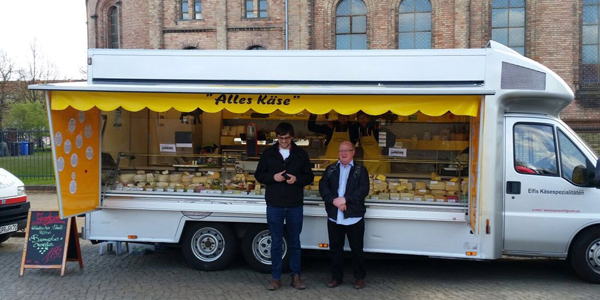Suzanne
Administrator for NIBS, University Park, University of Nottingham
View this author's profilePosts by Suzanne
The relationship between preference and choice
April 29, 2016
How should we understand the relationships between people’s preferences, people’s choices, and the values people assign to objects of choice? This was the topic of a recent NIBS mini-workshop which took place between 18 and 20 April 2016 in Potsdam, Berlin. Joining NIBS colleagues from Warwick, Nottingham and East Anglia were colleagues from our international …
The behavioural economics of parkrun by Ted Turocy
April 22, 2016
Last week, Stoke Gifford Parish Council voted to institute a £1 per runner charge on the parkrun (http://www.parkrun.org.uk) event held at Little Stoke Park in Bristol, citing, among other factors, the maintenance costs imposed on the park by the 200 or more participants who run, jog, or walk 5km as part of the event each …
The Strangeness of Tradition
January 8, 2016
In case you missed it, it’s well worth listening again to this episode of the Human Zoo (series 7), first broadcast on BBC Radio 4 on 22 December 2015. Hear NIBS Co-Investigator’s Nick Chater (University of Warwick) and Bob Sugden (University of East Anglia) talk about “The Strangeness of Tradition“. Christmas is the time of year …
Regret Theory: Looking Back, Looking Forward
December 21, 2015
In 1982, the Economic Journal published a paper by Graham Loomes and Robert Sugden proposing an alternative theory of rational choice under uncertainty called regret theory. A special anniversary session discussed the history of the theory, its success relative to other approaches, its applications and empirical evidence. In this video clip NIBS Co-Investigator, Robert Sugden, …
Choice Rules and Accumulator Networks by Sudeep Bhatia
September 7, 2015
Decision makers often use sophisticated rules to make their decisions. For example, when trying to evaluate two objects they may look at a single attribute and choose the object that is best on that attribute. Alternatively, they may try to examine all attributes, and then add up these attributes to determine the total desirability of …
Warwick Business School – Second Nudgeathon
July 3, 2015
On the 14th and 15th of September 2015, the second Nudgeathon, a behavioural change competition founded by the Warwick Business School, will take place at The Shard in London. Nudgeathon, as its name implies, is a nudging marathon. The main objective of the event is to develop implementable solutions to a given social issue. The idea …
Intertemporal Choice Workshop
March 5, 2015
Forty scholars from across the NIBS network and further afield met in Warwick to generate and discuss ideas related to intertemporal choice. Organised by the Intertemporal Choice mini-network in NIBS, the conference was set up to foster collaboration between researchers from different institutions, and to promote policy-focused research ideas tackling the issues related to choice …
Co-ordination Workshop Report by Emily Wyman
January 15, 2015
When individuals, groups, or even nations desire to act together to achieve something that none can achieve alone, they must often negotiate between multiple ways of accomplishing this. Typically, this will require some form of shared knowledge of the situation, a degree of assurance between parties, or some complex reasoning about what others are likely …


